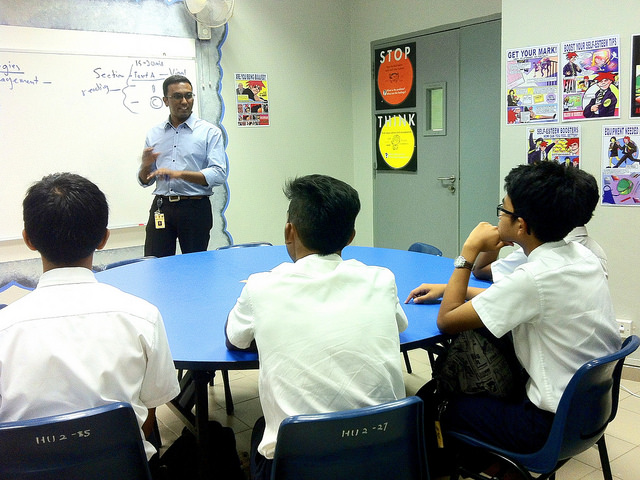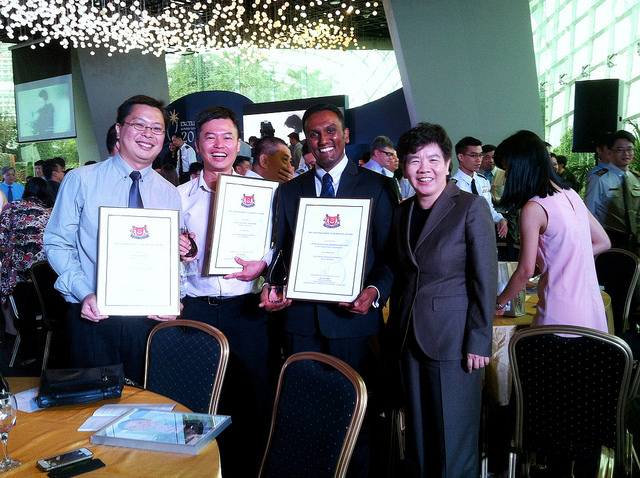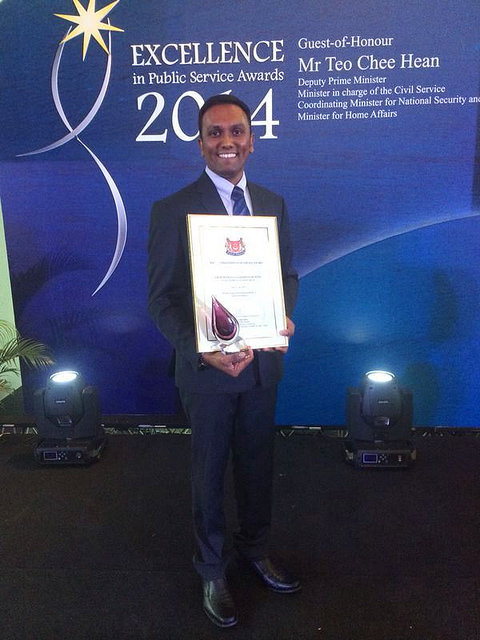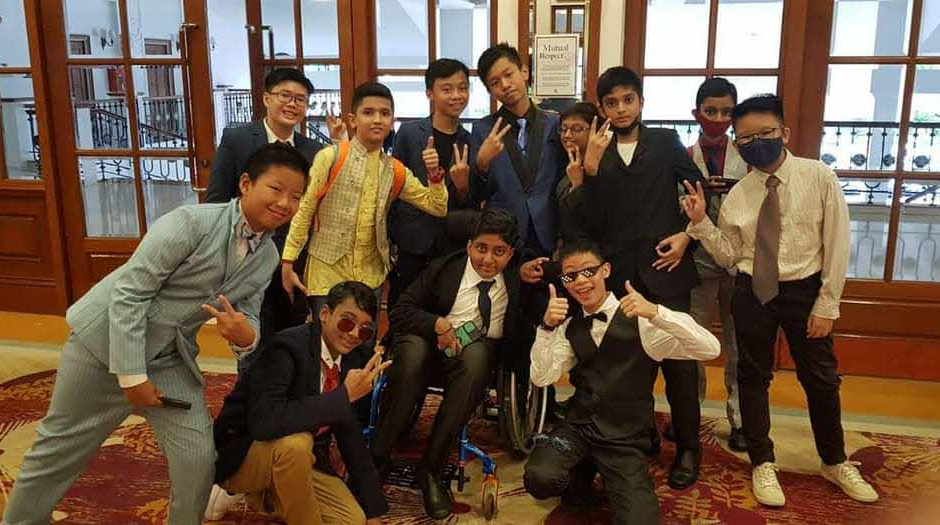How parents can work with Allied Educators to support students with special needs
20 Jun 2014



Transiting from primary to secondary school can be a challenge for students with special needs. They face a new environment to adapt to and also higher academic expectations.
But this period can also present opportunities for these students. As they mature, they are able to understand themselves better and are more aware of their condition. This makes it a crucial time to shape their self-perspective and grow their confidence.
“I want to impact a child’s life completely, not just to prepare them for the O-levels,” said Mr Vikneswaran s/o Krishnan Murthi, 33, an Allied Educator (Learning & Behavioural Support) at Anglo-Chinese School (Barker Road), who recently received the PS21 Star Service Award. This award recognises public officers who go the extra mile in carrying out their duties.
“It does not end with the psychological report”
Mr Vikneswaran shared that the psychological report of a child’s condition gives an insight into the challenges faced by the child at that time of assessment. It should be treated as a resource that can be used to guide the child’s development. Through constant observations, the child’s progress can be reviewed and support can be adjusted according to his or her needs.
“What we see initially [in the report] is not a conclusive statement,” said Mr Vikneswaran, who has a Degree in Psychology and a Masters in Special Education.
It is important not to allow students with special needs to feel defeated and weak, or use their condition as an excuse to not try harder. Instead, they can be spurred on to hone their abilities and reach for their potential.
“At secondary school age, you can see changes happening in them quite fast,” said Mr Vikneswaran.
“It’s a three prong approach – the parents, the school and the AED”
As a parent of a child with special needs, be ready for open discussions with people who can help your child. Talk to the school and the AED, and explore possibilities while understanding the constraints involved.
“The child is at the centre of our focus,” said Mr Vikneswaran.

As an AED, Mr Vikneswaran would have an action plan for each student depending on their needs. With that, he would also get the support of teachers by explaining the different conditions and the impact on classroom learning. Those with dyslexia, for example, would often find reflective exercises more challenging as they take a longer time to process information. Those struggling with autism on the other hand would more likely have behavioural issues in class.
By communicating with one another, observations from the teacher and AED would be combined with observations from the home front, which parents can provide. Ultimately, the purpose is to benefit the student.
“It’s a positive and lifelong relationship that we build,” said Mr Vikneswaran, whose ex-students and their parents still contact him when they need advice.
“Think of the child’s future, not just the O-levels”
It is important to look at the bigger picture. Often, the national examination at the end of four years of secondary education tends to be the focus. While we all know that the national exam is an important milestone, it is also necessary to take time to think of the longer term perspective.
“The student needs to develop cognitive thinking skills, behavioural skills, etc, that are essential for his or her future, not just the O-levels,” said Mr Vikneswaran.
As a first step, don’t focus on getting good grades all the time. Rather, see it as a four-year preparation period for the student, and look for gradual improvements over time. The small steps towards success are sometimes not in the grades, so parents would do well to keep an open mind and manage their expectations.
Secondly, parents can help their child to think about life after secondary school – What are they good at doing? What can they work towards? What type of work would they like to do in the future? Encourage them to be self-motivated and explain that they have the potential to succeed if they put their mind to it.
Running alongside students with special needs is not an easy task for parents or AEDs, and Mr Vikneswaran understands that. But he has chosen to be committed to this work.
“As much as you think you’re prepared, every day is still a learning experience”, shared Mr Vikneswaran.
“Don’t look forward to the recognition. It is more fulfilling to look forward to seeing the difference you’ve made in a person’s life.”




